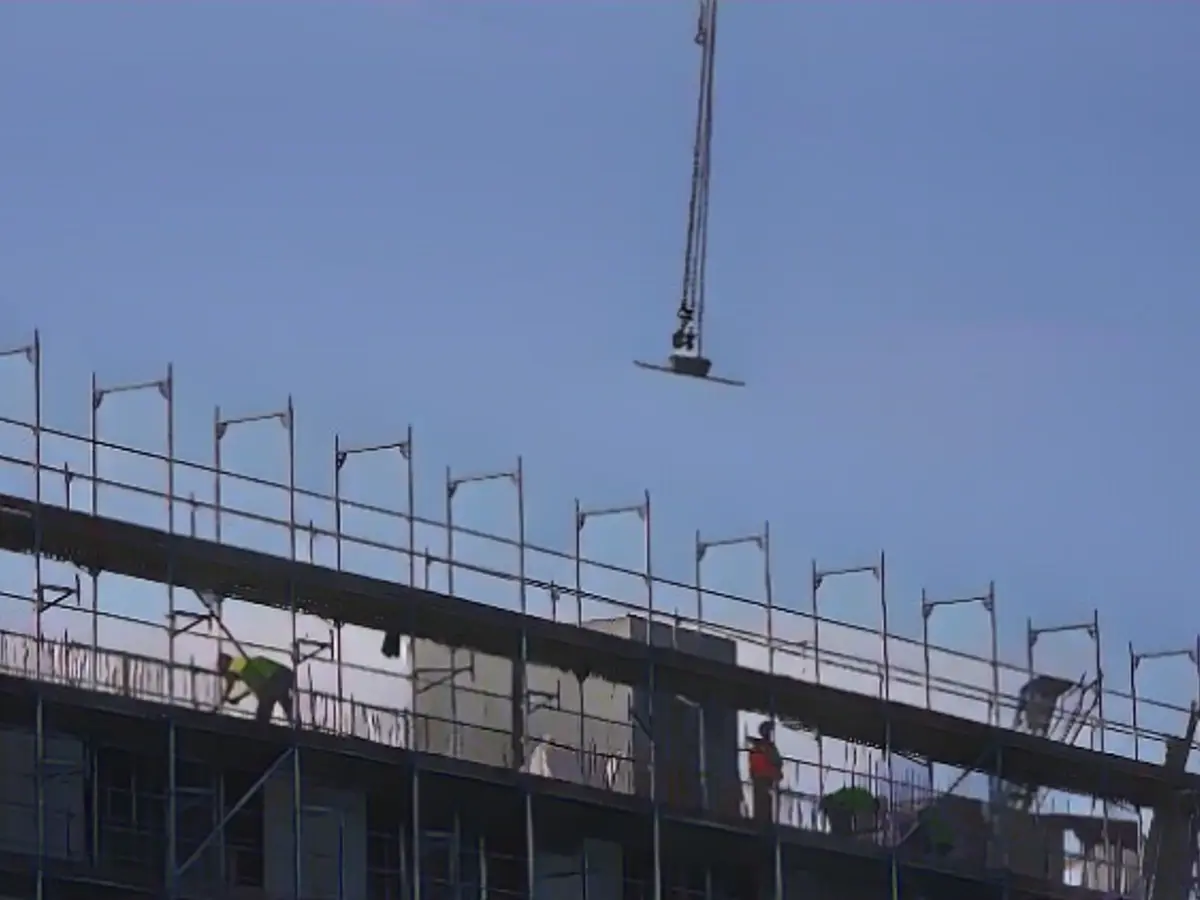War's Toll on Israel's Economy: A Struggle for Recovery
The relentless hammering of daily rocket alarms and the call-up of reservists for military service has left an indelible mark on Israel's economy. This conflict, primarily between Israel and the radical Islamic group Hamas, is causing ripples throughout the country, resulting in declined productivity in various sectors like construction, tourism, and gastronomy.
At Rav-Bariach Industries, a prominent manufacturer of security doors in the city of Ashkelon, employees work tirelessly assembling top-tier locks, with their activities regularly interrupted by rocket alarms. Despite the disruptions, the company, located just ten kilometers from the Gaza Strip, continues to operate, albeit with diminished efficiency.
The initial shock of the crisis gave way to a new challenge: labor shortages. With at least 125,000 residents displaced from their homes, the workforce strength is dwindling. Moreover, the deployment of over 360,000 reservists further stretched the already limited workforce.
"The situation is difficult now," acknowledges Rav-Bariach's Managing Director, Idan Zu-Aretz. "The current scarcity of hands makes working conditions challenging."
As with any national crisis, the Israeli economy has long been adapted to enduring levels of war-induced disruptions. However, according to economist Benjamin Bental, this latest conflict surpasses all recent Israeli-Arab conflicts in terms of magnitude. The construction sector, which depends on Palestinian labor, is experiencing a severe setback. Since the conflict escalated, the Palestinians' work permits have been suspended, erecting a challenging obstacle for the red-hot Israeli construction sector.
The tourism and hospitality sectors are equally impacted, with normally teeming cafes, stores, and restaurants wilting as a consequence of few visitors. Bars and clubs are largely barricaded, as the usual patrons of Israeli vacation hotspots nervously await the war's demise.
In the stead of tourists, Israeli hotels and kibbutzes are hosting internally displaced persons, offering them sanctuary during these trying times. Rocket alarms and the ever-looming threat of conflict have shook-up consumer behavior, with credit card transactions showing a marked decline of 10-20% after October 7, and 21-33% post the Israeli ground offensive in Gaza Strip.
Growth forecasts for the Israeli economy initially projected in 2023 and 2024 have been revised downward due to the increased military expenditures brought about by the conflict. While the central bank maintains optimism with a 2.8% growth estimation for 2024, the long-term consequences for both Gaza and Israel remain uncertain.
Impact on Construction Sector
The construction sector's viability is chiefly hinged on the presence of an abundant workforce. With the influx of military reservists and Palestinians being barred from working in Israel, the sector is now grappling with a serious dearth of manpower.
According to analyst reports, this labor shortage is costing Israel's construction sector approximately $37 million per day.
Tourism Impact
The conflict between Israel and Hamas has severely hurt Israel's tourism industry. The escalating turmoil in the Gaza Strip and along the border with Lebanon have become obstacles for travelers, consequently diminishing the industry's revenue.
Experts predict that the tourism sector will require years to rebound, only seeing small signs of improvement post the cessation of hostilities.
The Gastronomy Sector and Business
The ongoing conflict has precipitated drastic changes in consumer behavior and public perception, ultimately impacting the economy as well. Companies have been reticent in voicing their position on the Middle East conflict, fearing public boycotts and scrutiny.
Notable instances have arisen where companies' actions have resulted in public outcry. For instance, free meals offered to the Israeli military by McDonald's sparked intense controversy, raising questions on corporate ethics and the potential for boycotts.
While the conflict's impact on the gastronomy sector may not be as pervasive as that on construction or tourism, its long-term consequences remain to be seen.
Overall Economic Impact
The economic consequences of the conflict are expected to reap a massive burden on economic activities for years to come. The devastation resulting in the Gaza economy contracting by 83% in 2024, a poverty rate projected to rise to 74.3%, and an unemployment rate approaching 80%. This adds to the economic burden imposed upon Israel's economy through sectors like construction and tourism.







